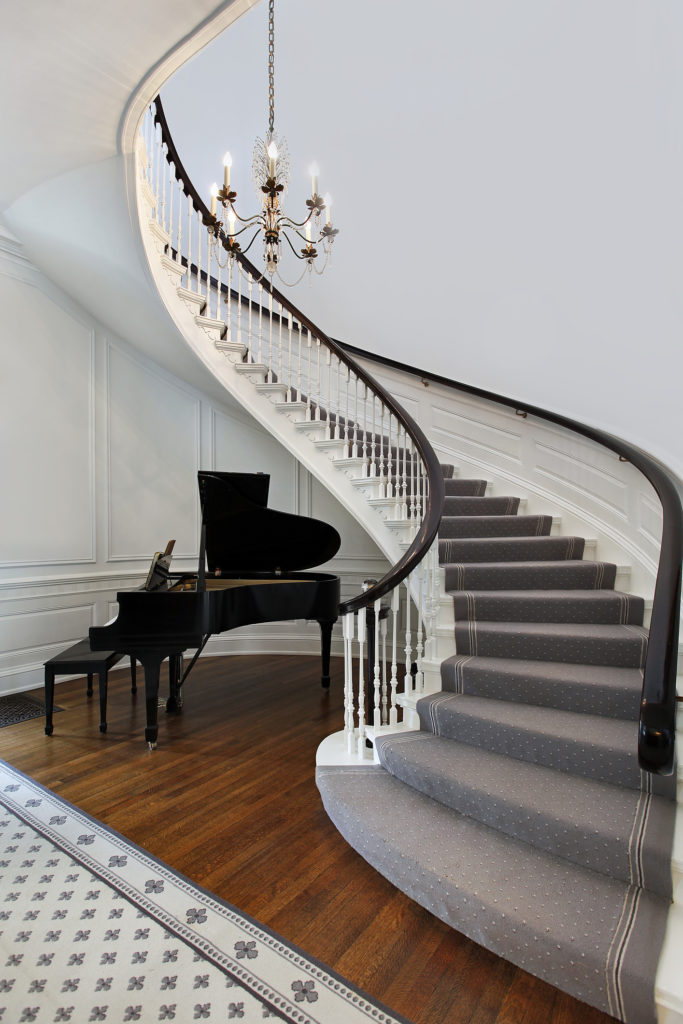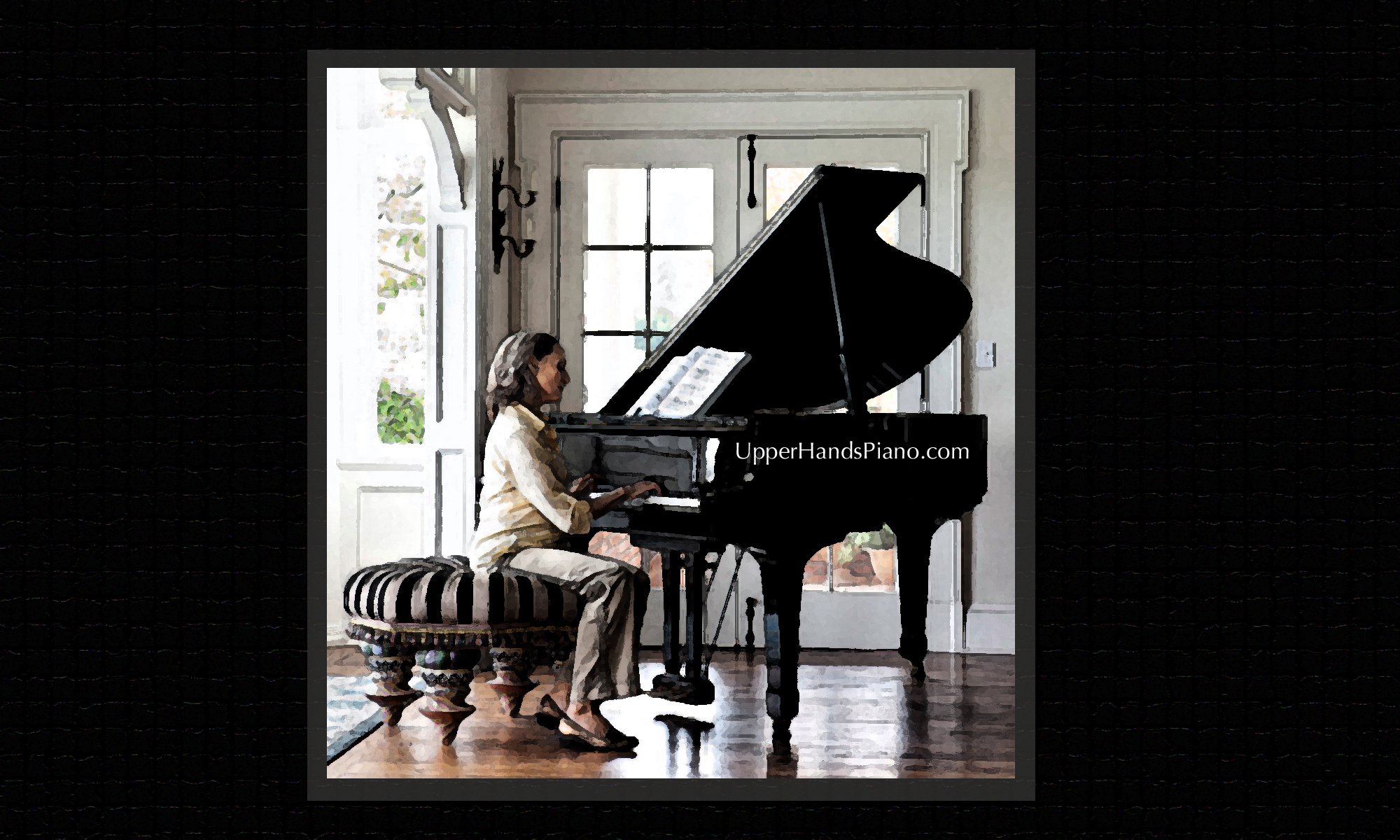Dear Piano Peeps:
Today I hope you will join me in pledging to play the piano at least 10 minutes every day for the next 30 days (January 15-February 13, 2017). You don’t need to have a goal attached to your pledge, other than sitting down at the bench every day, and playing for a few minutes. Even if you were working all day and feel beyond tired, sit down for 10 minutes before you get into bed. Even if you are out-of-town, practice “virtually” by looking at the music and “playing” on a tabletop (which is surprisingly effective!), or spend 10 minutes listening to versions of your current pieces on YouTube, while playing along with your right hand (if it’s not too fast!) I chose this photo to remind you to take it one step at a time 🙂

Why is this an important pledge? Research shows that short daily practice sessions are more effective in long-term learning, than infrequent long practice sessions. The brain learns best with consistent exposure to the notes and keys. Another reason to pledge is to nurture the “habit” of practicing. When I was a piano student, I would be amazed at how quickly the week between lessons shot by. And I would wish that I had just taken a little time each day to practice my pieces. After 30 days of playing for at least 10 minutes, I hope that you will fold practice into your daily routine, and will feel the strong pull of the piano before bed, if you didn’t get to it during the day.
Though 30 days might seem like a long time to promise to do something, people generally find that it goes by quickly; and playing daily gives them an increasing sense of accomplishment each day that they fulfill the 10-minute pledge.
Practicing more than 10 minutes per day is great, but do try to get a minimum of 10 minutes on the keys every day. For my part, I will be writing some blog posts to help you practice happier and healthier. Besides playing the piano every day, I pledge to play the accordion every day (I have to strengthen those push-pull accordion shoulder muscles before the onslaught of St. Patrick’s Day gigs in March!) And I will be practicing at least 10 minutes of French each day. I have a 2-year online subscription to Rosetta Stone, and am loving it!
If you do have a specific musical skill you would like to dedicate this month to, write it down in a music journal, and share it with us! Let us support your progress. But keep it small, and do-able. Rather than trying to “perfect” something, strive for something achievable such as increased smoothness in a musical passage, memorizing a couple of lines, working on hand-strengthening exercises, etc. Make your goals open-ended, working towards progress, not perfection. I will talk a lot more about “perfectionism” this month. Thanks for joining our pledge. I look forward to hearing from you!
With love and music, Gaili
UpperHandsPiano.com ||| Upper Hands Piano books are available on Amazon.com

Great motivation. I think I will focus on chords. Thanks Gaili.
Excellent focus! All music is based on ever-moving chords. Being able to play and recognize chords makes learning a piece much easier. Thanks for joining the pledge!
Hi Gaili,
Thank you for this challenge. My goal is to work up Fur Elise during this month of challenge, so ghat I could play it (again) without error for an audience.
Fantastic! When you start your practice session, focus on the sections you find challenging, first, especially if you only have 10 minutes. Then play it all the way through when you have more time. I think of working on the tough sections as the work, and playing it from beginning to end as the reward. Both working on difficult sections, and playing through without stopping, are great practices. Would you be open to reexamining the ideal of playing it “without error?” Yes, it feels great to play something through with no mistakes, when we are playing at home, alone. But that’s a lot of pressure when playing in front of others. And I don’t think a mistake or two or three, ruins the piece. When I go to professional concerts (LA Phil, amongst others) I almost always hear a few mistakes. Professional musicians practice continuing to play through their mistakes. They prepare themselves for the probability of a few errors, and just breathe deeply, releasing anxiety when an error or memory lapse occurs. There is more of an emphasis on playing from the heart, using dynamics and tempo fluctuations to express emotion. This is your process and it’s very personal, so I don’t want to tell you how to think or feel about your playing. From my perspective, though, I would much rather hear a performance that is played wholeheartedly, than played perfectly. Please keep us posted on your progress! Thanks for joining our pledge!
Commitment is everything………..10 minutes is so do-able and focused and if necessary just sectional, to iron out challenging patterns
I agree, what we are really talking about here is commitment. And it is amazing how much we can iron out with just 10 minutes of focused practice on a challenging musical phrase. Thanks for your comment!